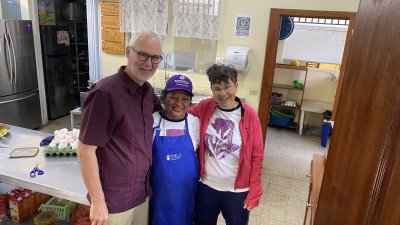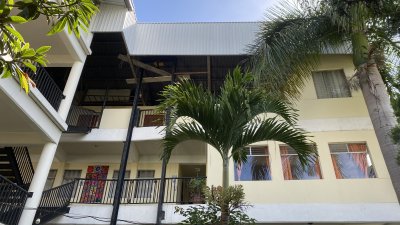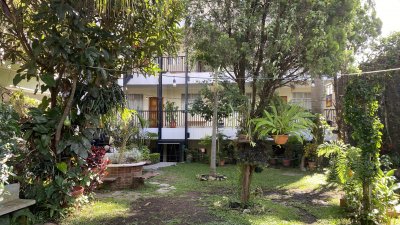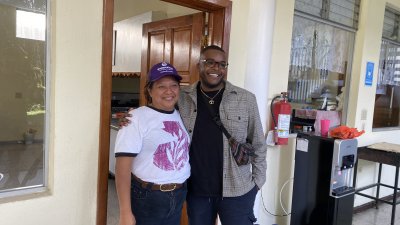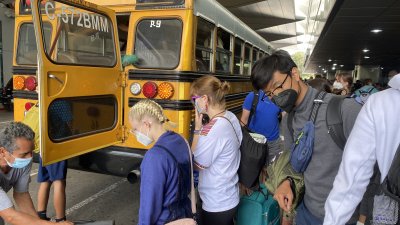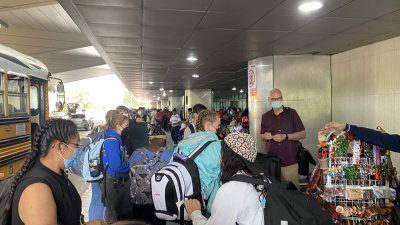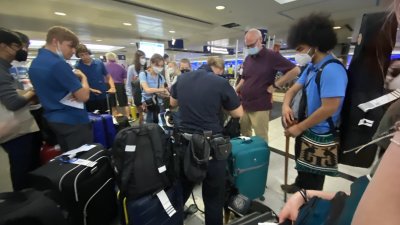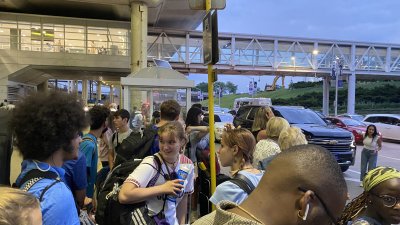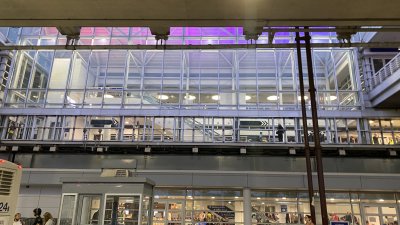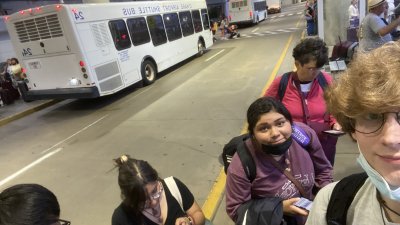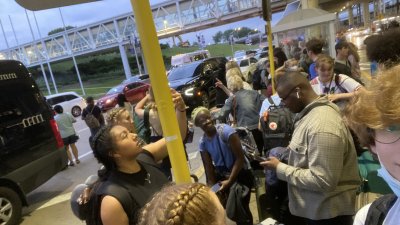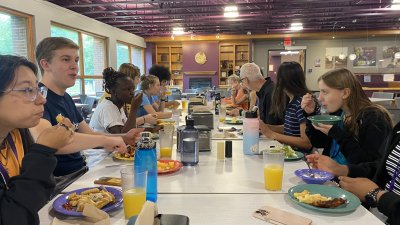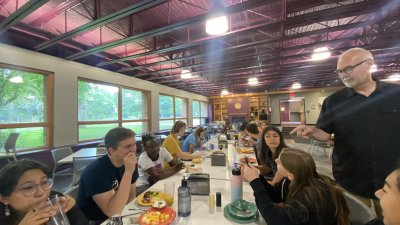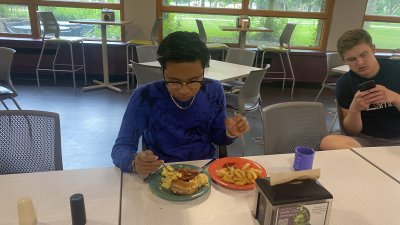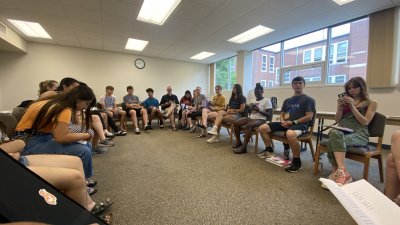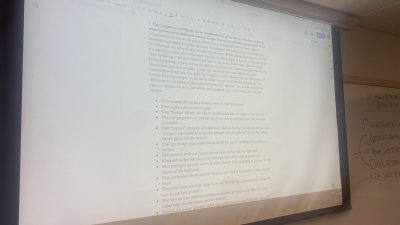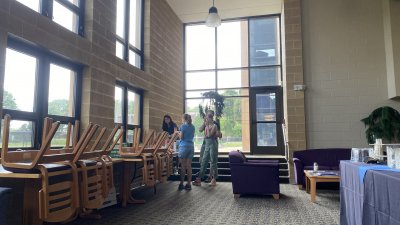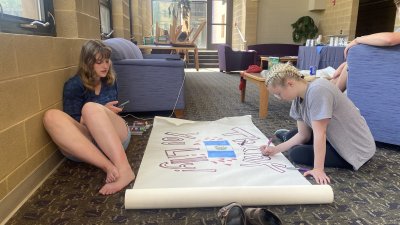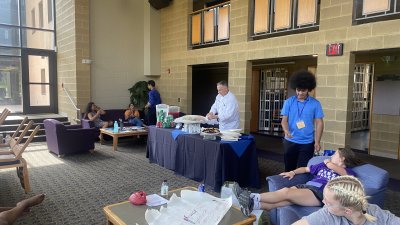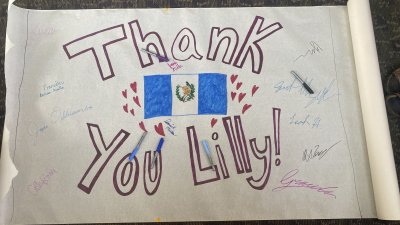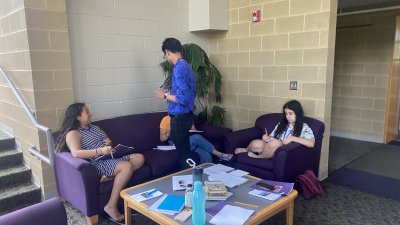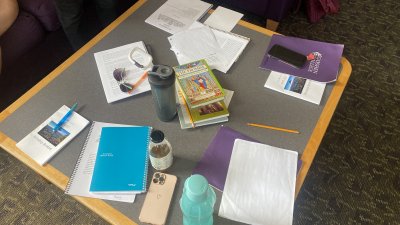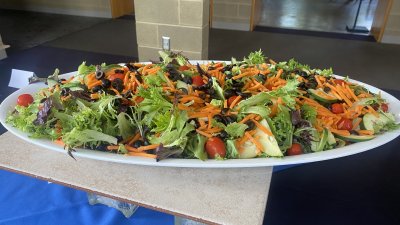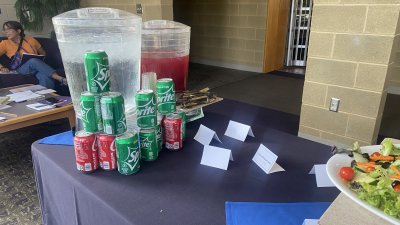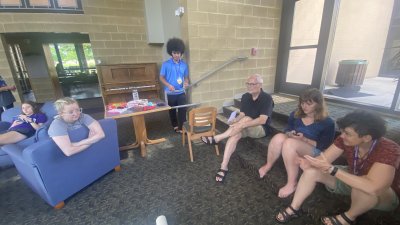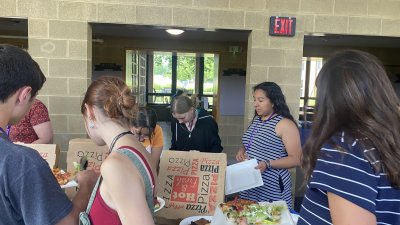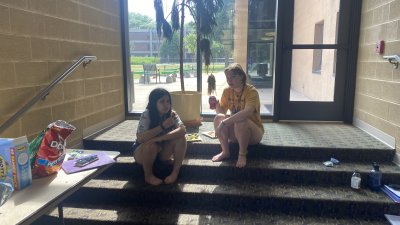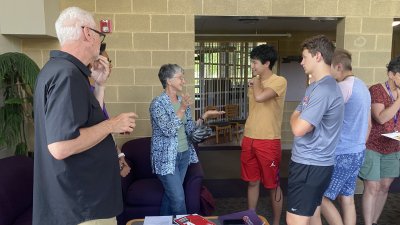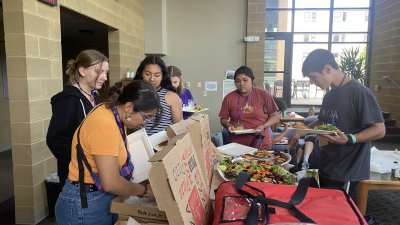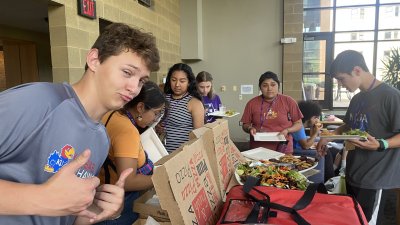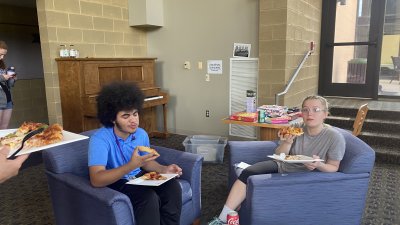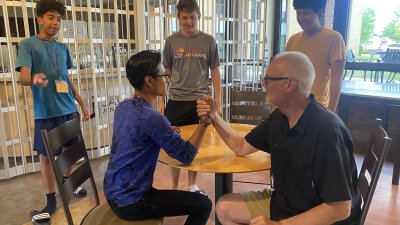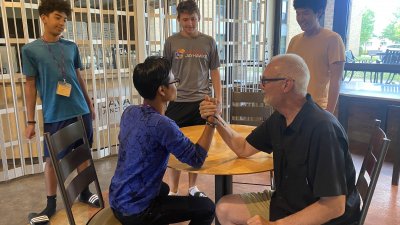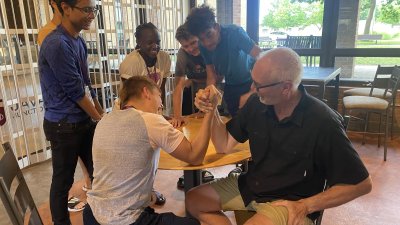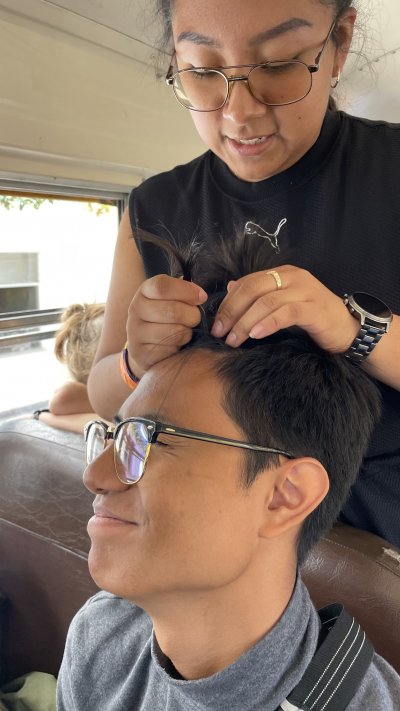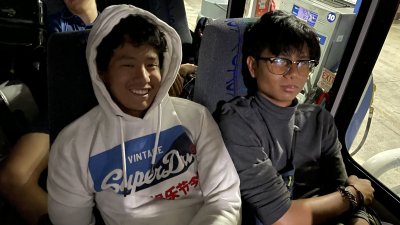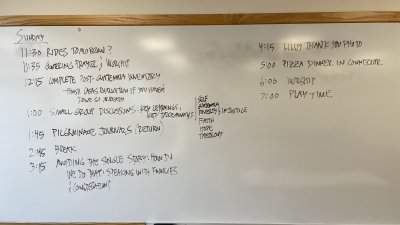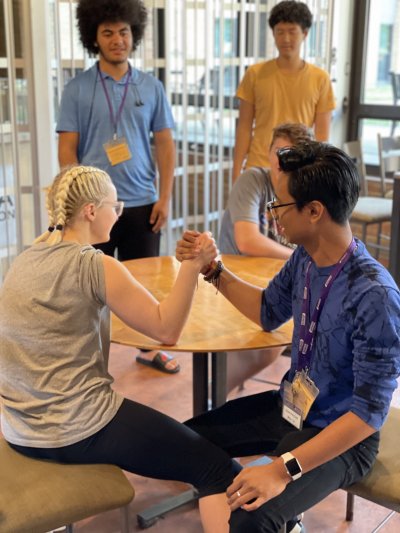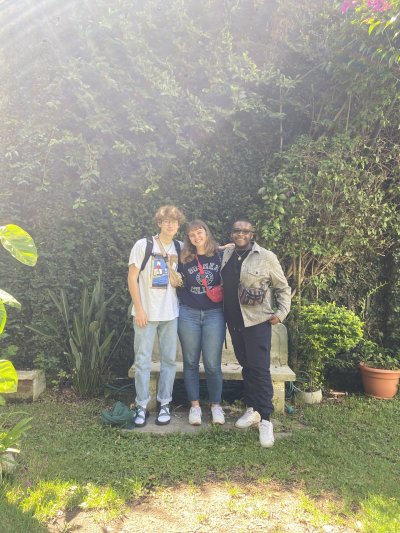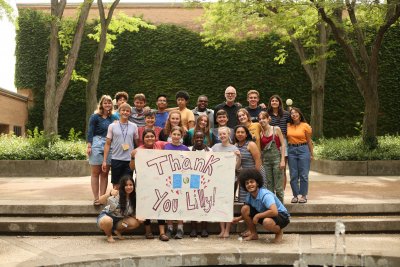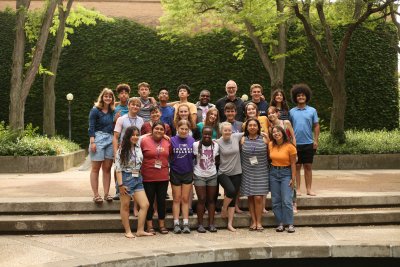Return to Goshen & Reorientation
We said goodbye to Guatemala City and SEMILLA yesterday morning as we headed for the airport. We departed with heavy hearts and luggage with mementos for family and friends. Our time at Semilla had felt short despite being there for two weeks, but then again, time does fly when you’re having rigorous theological discussions. Saturday proved to be a long day of traveling as we left the airport on our flight at 1:30 pm and arrived in Chicago at 7:30 pm. And after another four hours and a few attempts to stop for food on the way back, we made it safely to Goshen College.
The majority of our reorientation took place today starting promptly after a brunch at 10:30 am. The notes of “Santo, Santo, Santo” and “Salt of the Earth” filled the once familiar classroom that we had inhabited two weeks ago. It felt strange to be back in the classroom on Goshen’s campus so soon. The past two weeks had flown by incredibly fast for some of our students. With Sunday being our main day of reorientation, the bulk of the day was spent reflecting as a group on how our experiences may have shaped our vocation and faith. There were numerous suggestions from students that they would continue to find a vocation in experiencing a cultural exchange such as what we had experienced in Guatemala, as well as hints of vocation through continuing theological academia.
Confronting our single stories and discussing how single stories may have influenced our perceptions of the world was another topic of conversation today. Prior to leaving for Guatemala, we had watched a Ted-Talk by Chimamanda Ngozi Adichie called The Danger of a Single Story, which depicted the dangers of generalizations and taught us how to reject single stories. The Ted-Talk at the beginning of the course served its purpose prior to leaving for Guatemala. Now, upon returning home, the notions of a country like Guatemala that these students may have had, have changed for the better.
Although it was from a journal last week, Sarah’s observations about visiting the Mayan ruins at Iximche are worth referencing here. She wrote (quoted with permission): “At the end of our tour, we walked to the final region where there was a place of worship being used currently. In this place, there was so much natural beauty. The trees danced in the cool mountain breeze and we could look over the cliff to a mountain range teeming with life. The sun streamed through the leaves of the trees, and here I felt the presence of God. In the quiet worship of the Mayan people, I felt an energy that can only be attributed to God. The sacred flow of God’s energy through the creation and through us as a piece of creation was manifested in this place.”
James wrote this week in one of his journals (quoted with permission), “These weeks have also started to transform my understanding of theology and faith. It has consistently stripped away at oversimplifications I engaged in. Conversations about theology have been so meaningful, particularly with an academic focus. Considering soteriology, the concept of the Trinity, and to what extent God is all-powerful have opened up a new breadth and depth of theological questions. The level of thought is refreshing and invigorating.” He continued, “Taking my experiences of this trip, I see God calling me to be politically involved in some form to live in a way that Jesus showed in his commitment to love and social justice. I will take this theme with me as I think about how humans inhabit the world, relate to each other, and to God.”
Monday morning will consist of our final meetings and reflections as a group. This group of students has proved time and time again to be thoughtful and increasingly devoted to learning about culture and theology. Although tomorrow will be our last day together, we believe their time together will continue to shape their lives from here on out.
-Alexander Koscher
